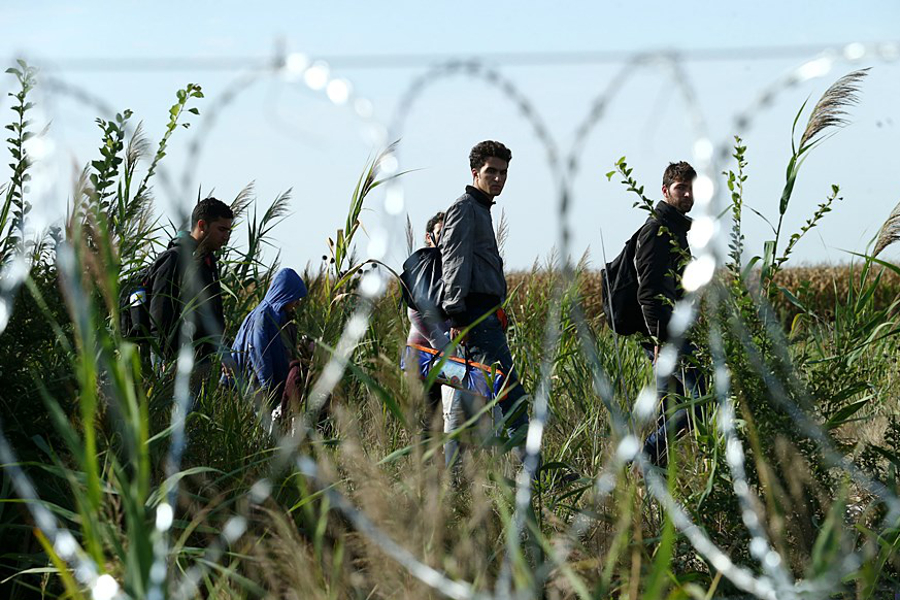Syrian refugees in Turkey: a neoliberal approach to integration
By yjmsawl, on 17 October 2019
Dr Dogus Simsek is a Teaching Fellow in Political Sociology at UCL SSEES.
This article was first posted in the Crisis Magazine on 1st of October.
Since 2011, Turkey has received more than 3.6 million Syrian refugees. This is almost half of the global Syrian refugee population. In the early phases of the refugee influx, Turkish authorities framed Syrians as ‘guests’ rather than refugees. Under the assumption that the crisis would end quickly – and Syrians would, therefore, return home after short stay – the country adopted an “open door” policy on Syrian migration. While seemingly hospitable, Syrians’ guest status fell outside any legal definition in international refugee policies. Although Turkey signed the 1951 Geneva Convention Relating to the Status of Refugees and its 1967 Additional Protocol on the status of refugees, the country applies a geographical limitation that excluded Syria. For Syrians in Turkey today, this means international asylum rights don’t apply.
What does apply to them is the Temporary Protection (TP) regime the Turkish government adopted in October, 2011. This ensured all Syrians humanitarian assistance and the right to a limitless duration of stay in Turkey. It also confirmed adherence to the principle of non-refoulement, the idea that refugees must not be returned to a country where they would be in likely danger of persecution. Given the dangers of return, this Temporary Protection regime gave Syrians registered as refugees in Turkey access to healthcare and protection from forced return. Managing this scheme became the responsibility of the Turkish Directorate General of Migration Management (DGMM), a body that works under the authority of The Ministry of Interior. According to the UN High Commissioner for Refugees (UNHCR), as of August 2019 there were 3,649,750 Syrian refugees registered in Turkey under this protection program. It’s estimated that an additional 500,000 Syrians are living in Turkey, unregistered.
In April, 2014, Turkey adopted a new Law on Foreigners and International Protection that further elaborated the Temporary Protection status of Syrians in Turkey. This law focused on guaranteeing that Syrians could not be returned to Syria until safe conditions and access to fundamental rights there were guaranteed (non-refoulement). In addition, the rights of Syrian nationals in Turkey came to include lawful stay in Turkey until the Syrian conflict was over. Furthermore, access to health care, education, and social assistance were guaranteed. This even included, for example, home care assistance to families with a disabled relative. Under this law, access to the labour market was also granted as a right, and the task of enforcing this was delegated to the Ministry of Social Security and Work. An additional regulation was then issued in 2016, which allowed registered Syrian refugees to apply for work permits, in a step to formalize Syrian labour and enable access to workers’ rights.
However, accessing work permits remained difficult and depended upon employers’ willingness to offer contracts. As a result, the number of work permits granted to Syrian refugees remains low according to the latest figures made available. From the 1st of January, 2016 to the 30th of September, 2018, only 27,930 work permits were issued to Syrian workers, with 25,457 permits going to men and 2,473 to women. The majority of Syrians in Turkey reside in towns and cities rather than in refugee camps, and their populations are primarily concentrated in the governorates bordering Syria and large metropolitan areas. There, they struggle to access adequate accommodation, social services and job opportunities.
The reality for most Syrians in Turkey remains that they work in an informal economy without social security, faced with exploitation and lack safe working conditions. They are overworked and underpaid, with no social security or pension rights. Syrians primarily work in the largely informal agricultural and textile sectors, and with few safety protections. According to figures from the Worker Health and Safety Council (İşçi Sağlığı ve İş Güvenliği Meclisi), 108 refugees lost their lives in work-related accidents in 2018. In turn, Syrians’ low socio-economic status leads to their relative exclusion from wider Turkish society. Syrians who work in the informal market face difficulties building bridges with the Turkish working class, due to competition over employment opportunities.
The Turkish labour market also poses high exploitation risks for children, given the widespread phenomenon of child labour in areas such as agriculture, textile factories, as well as restaurants in various cities of Turkey. According to a United Metalworkers Union report, the textile sector employs approximately 19% of underage workers. 29% of these underage workers are Syrian children under the age of 15. In fact, the majority of school-aged Syrian children are working instead of attending school. As of 2019, 645,000 Syrian children were enrolled to Turkish state schools, while 400,000 Syrian children in Turkey were out of school. In addition to child labor, various other barriers obstruct access to children’s education, including a lack of parents’ knowledge about school registration procedures and the education system, and discrimination in schools. Findings from my own research indicate that many Syrian refugees experience financial hardship due to having limited access to the labour market, which also has a negative effect on Syrian children’s access to education.
In 2016, it was announced that millions of Syrians living in Turkey would be granted Turkish citizenship. As of 2019, 79,820 Syrians were granted citizenship in Turkey. Granting full citizenship is an important development but it remains unclear whether citizenship would be accessible for all Syrians under Temporary Protection. The deputy prime minister has clarified that ‘citizenship will be granted initially based on criteria such as employment, education level, wealth, and urgency of the applicant’s individual situation.’ This has raised concerns that Syrians who lack economic resources and are less skilled will be denied access to citizenship rights. Such concerns seem founded, as Turkey’s refugee integration policy favours those skilled contributors to the economy and those refugees with access to financial capital. This integration processes excludes refugees who are unskilled and have limited economic resources for investment in the receiving country.
Such a policy does not equally support the integration of all Syrians residing in Turkey but is class-based; only ‘selected’ Syrians are deemed worthy of state support. The Turkish government has pursued a neoliberal approach to the integration of Syrian refugees, where their economic utility has come to form the main entry point for accessing rights. Current integration policies, therefore, undermine Syrian refugees’ access to fundamental rights by making such rights directly conditional to Turkey’s economic gain. Social tensions between the Syrians and Turks have risen to peak levels in recent months, as riots occurred in Istanbul in July this year. As these tensions persist, the rights granted to Syrians will likely face further pressures in the future.
 Close
Close










